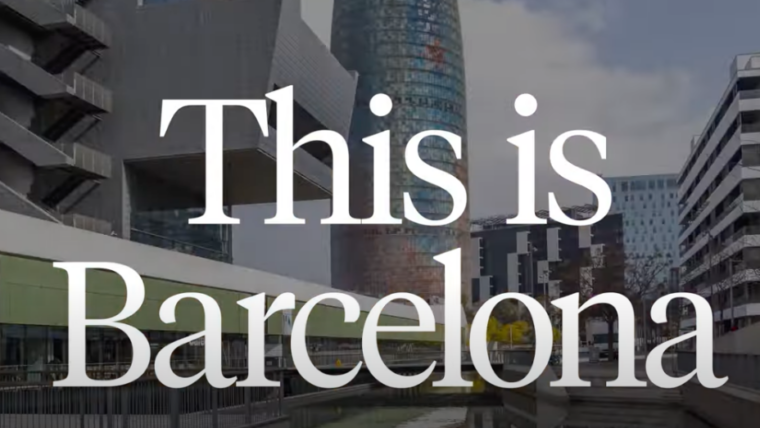Rethinking the future of tourism in Barcelona
PIMEC has launched a podcast series on tourism to explore the main challenges and opportunities in managing Barcelona as a destination, as well as future prospects for the city’s sustainable growth, helping to shape a new narrative around the visitor economy. Xavier Suñol, head of the Tourism Services Directorate at Barcelona City Council, was a guest on the second episode of the podcast.

In this episode of the PIMEC Turisme podcast, Xavier Suñol, director of Tourism Services at Barcelona City Council and soon to retire, joins Ángel Díaz, member of the PIMEC Turisme Board, to discuss the implementation of initiatives and measures aimed at managing Barcelona’s success as a tourist destination. This project is supported by Barcelona City Council and Barcelona Provincial Council.
Government measure
Barcelona has been a pioneer in implementing policies to manage the success of tourism. “Since the first strategic plan in 2011, we’ve been working to improve how tourism integrates with the city through a range of actions,” says Xavier Suñol. These efforts have culminated in the latest Government Measure for Tourism Management in Barcelona 2024–2027, which seeks to prioritise the management of tourism activity to achieve a better balance with residents’ daily lives and position Barcelona as a benchmark in tourism governance, planning, funding and social return.
Balancing tourism activity and residents’ quality of life
Suñol also spoke about strategies aimed at maintaining a balance between tourism activity and quality of life for residents: “The goal isn’t to increase the number of visitors but to improve their quality – and that is achieved through good management. All investment and improvements in the city have been made with residents in mind.” He also stated that “Barcelona’s short-term goal, in line with other major European tourist cities, is to build a collective identity – one that is distinctive thanks to our culture and heritage.” A strategy designed to attract tourism that reflects the city’s identity.
A paradigm shift in tourism promotion
Barcelona City Council, through its tourism promotion body – the Barcelona Tourism Consortium – has introduced a paradigm shift in the way the city is promoted, which was unveiled at Fitur. The former director of Tourism Services at Barcelona City Council notes: “The slogan Visit Barcelona has been replaced by This is Barcelona. Promotion is no longer generalist, but instead targeted at specific activities and audiences, such as encouraging authentic cultural experiences for visitors.”
Sustainability, a key focus in tourism management
Sustainability has become a key tool in tourism management, both for Barcelona as a destination and for local businesses. The Commitment to Sustainable Tourism in destination Barcelona – a joint project led by the City Council and Barcelona Provincial Council, in collaboration with the Barcelona Chamber of Commerce and the Barcelona Tourist Consortium – has, according to EU statistics, made Catalonia the leading region in Europe in terms of sustainability certifications. “There are now 1,141 tourism businesses certified with the Biosphere label,” Suñol explains. Barcelona also has a Destination Barcelona Sustainable Tourism Plan (PSTDB), comprising 19 projects that are advancing steadily and responding to the four main areas defined by the European Union: the green and sustainable transition, energy efficiency, the digital transition and competitiveness.
Tourism activity taxation
One of Barcelona City Council’s tools for managing tourism is the tourist tax (IEET). This measure helps regulate tourism while delivering economic and social returns for city residents. In this context, Suñol explains that among other projects, “the IEET surcharge has funded the installation of climate control in the city’s nurseries and primary schools as part of the School Climate Plan, and also supported the Viu la vela programme during this year’s America’s Cup, which gave schoolchildren in Barcelona their first experience at sea.”
Efficient tourism management
Through the management plan for High Footfall Areas (EGAs), “Barcelona City Council,” Suñol explains, “takes a tailored approach to locations with a high volume of tourist activity that face shared challenges: overcrowded public spaces, a changing retail landscape due to increasing ‘touristification’, the decline of local commerce and the disturbance caused to residents… A few months ago, the plan for the Sagrada Família was presented, and work is already under way on the next landmarks, Park Güell and Rambla de Catalunya. At Park Güell, measures are already in place, such as the introduction of online-only ticket sales. The Boqueria Market is also set to undergo alterations shortly.”
Support for entrepreneurship
Barcelona City Council’s economic development agency, Barcelona Activa, runs a broad range of support programmes for the city’s SMEs. A leader in entrepreneurship and training initiatives, as well as in job creation grants, it has launched programmes such as Impulsem el que fas, which includes a strand focused on sustainable tourism.




